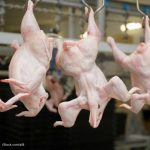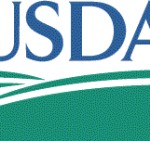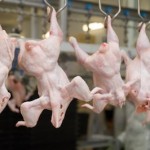A new study published by the Food Standards Agency in the UK finds that most of the chickens sold in that country test positive for the presence of Campylobacter bacteria. The study is the first part of a year-long survey of Campylobacter on fresh chickens. The FSA states that its number one food safety priority is tackling Campylobacter contamination on poultry. The results show that 18% of chickens tested positive for Campylobacter above the highest level of contamination (above 1,000 colony forming units per gram). They also found that 70% of the chickens tested positive for Campylobacter. And 6% of packaging tested positive for Campylobacter with only one sample at the highest level of contamination. So far, 1,995 samples of fresh whole chilled chickens have been tested out of a … [Read more...]
Documents Show Possible Collusion Between FDA and Pfizer
Food & Water Watch has released documents, including draft press releases and emails, that they say shows the FDA colluded with the pharmaceutical company Pfizer to minimize the results of a study that links inorganic arsenic, which is a carcinogen, to the U.S. food supply. Food & Water Watch obtained the documents through the Freedom of Information Act. Communications between the government and Pfizer began before a 2011 announcement to suspend sales of roxarsone, an arsenic-based drug used in poultry feed. A 2007 study suggested that roxarsone converts into the most dangerous form of arsenic in chickens. Elevated levels of inorganic arsenic were found in the livers of chickens given the drug compared to chickens that never got it. Continued approval of roxarsone violates the … [Read more...]
China Completes Paperwork for Poultry Export to U.S.
The USDA's FSIS announced yesterday that China has completed the "necessary paperwork" to certify four of its poultry processing plants so they can export processed poultry products to the U.S. The raw poultry will have to come from "approved sources", but food safety advocates are concerned. Wenonah Hauter, executive director of Food and Water Watch said in a statement, "China's food safety system is a wreck. Food & Water Watch has been fighting FSIS on this issue since it first proposed granting China equivalency status in November 2005. There have been scores of food safety scandals in China, and the most recent ones have involved expired poultry products sold to U.S. fast food restaurants based in China. Now, we have FSIS moving forward to implement this ill-conceived decision, … [Read more...]
Congress Members Ask for More Answers on Poultry Inspection
Fifteen members of Congress sent a letter last week to Secretary of Agriculture Tom Vilsack about the new poultry inspection system that has been criticized by consumer, food safety, and workplace safety advocates. They wrote they are "extremely disappointed" that the USDA did not address their concerns about the new rule about HIMP, or the New Poultry Inspection System (NPIS). The letter states "the new rule will create a system that is detrimental to food and worker safety, as well as animal welfare. This rule abdicates food safety oversight from the USDA into the hands of industry and it places workers in jeopardy." The rule removes USDA-FSIS inspectors from processing lines in poultry plants and instead lets corporations use their own employees for inspections. This creates a … [Read more...]
Tyson, Perdue End Antibiotic Use in Chicken Hatcheries
Tyson Foods announced that as of October 1, 2014, it will no longer use antibiotics in its chicken hatcheries. Antibiotic use in farm animals for reasons other than treating disease has been linked to the evolution and development of antibiotic-resistant bacteria that have made the jump from animals to humans. Purdue announced it was also discontinuing antibiotic use in its chickens last month. Tyson will still use antibiotics when prescribed by a veterinarian, although they will still be used to "prevent disease", which is one of the ways antibiotic resistance develops. They also state that the "vast majority" of antibiotics used in their hatcheries aren't used in human medicine, although antibiotic resistance can still develop even when antibiotics not used in human medicine are … [Read more...]
Food & Water Watch Sues USDA to Stop Poultry Rule
Food & Water Watch sued the USDA yesterday to stop implementation of the New Poultry Inspection System (NPIS) rules, which would replace government food safety inspectors with company employees. Wenonah Hauter, executive director of Food & Water Watch, said in a statement, "these rules essentially privatize poultry inspection, and pave the way for others in the meat industry to police themselves." These rules come on the heels of the huge Foster Farms chicken Salmonella outbreak which sickened thousands of people over many months. Many people in that outbreak were hospitalized because the seven strains of Salmonella Heidelberg on those products were resistant to several strains of antibiotics. The NRDC just released USDA-FSIS inspection reports on Foster Farms which showed that … [Read more...]
USDA Publishes Final Poultry Slaughter Rule
On Thursday, July 31, 2014, the USDA published the final rule of the Modernization of Poultry Slaughter Inspection, the highly controversial change in poultry slaughter plants that food and worker safety advocates deplore. That rule removes USDA inspectors from plants and replaces them with company employees, and increases slaughter line speeds from 140 birds per minute to 175. There was one change before the rule was released; the government decided to keep the maximum line speed at 140 birds per minute. The rule does require microbiological testing and establishes the New Poultry Inspection System (NPIS). Unfortunately, corporations can decide for themselves whether or not to participate in NPIS. Food & Water Watch executive director Wenonah Hauter said in a statement, "today, … [Read more...]
Chinese Meat Plant Implicated in Food Safety Scandal
According to Food & Water Watch, Shanghai Husi Foods Company, a meat plant in China, is implicated in a Chinese food safety scandal. That plant passed USDA audits in 2004 and 2010. This is a problem because last year the USDA decided to let chicken processed in China be exported to the United States. Food & Water Watch has sent a letter to USDA Secretary Tom Vilsack, asking him to stop all activities that would "pave the way for China to export their poultry products to the U.S." Shanghai Husi Foods sold expired meat and poultry products to Chinese fast food restaurants and exported some of those foods to Japan. Wenonah Hauter, executive director of Food & Water Watch said in a statement, "it has been nearly a decade since China made its initial request to send its … [Read more...]
USDA Sends HIMP Poultry Rule to OMB
The USDA has submitted a draft final version of the HAACP Based Models Project (HIMP), the Modernization of Poultry Slaughter Inspection Rule to the Office of Management and Budget today. That rule has been criticized from everyone from food safety advocates to worker's unions. Food & Water Watch does not like this rule, which would reduce the number of USDA inspectors in poultry slaughter plants and replace them with company employees. Line speeds for poultry carcass inspections will be increased to 175 birds per minute, which critics claim is much too fast for any reasonable inspection. The industry will gain at least $260 million every year because of fewer regulations, increased production, and no guarantees of food safety. And there is concern that employees may not be as … [Read more...]
Problems with George’s Chicken HIMP Plant in Virginia
Food & Water Watch has released information about problems with a chicken processing plant that is part of the HACCP-based Inspection Models Project (HIMP) that the USDA is promoting as a modernization of poultry inspection. That corporation owns two plants; one has a full staff of USDA FSIS inspectors; the other is privatized, where most of the inspection is turned over to company employees. The privatized HIMP plant has been upgraded in several ways in the last few years. Walls were repainted, floors cleaned, and slaughter line speeds reduced, even though HIMP calls for increasing those speeds from 140 to 175 birds per minute. Whenever government officials have asked to visit other HIMP plants, FSIS has refused. The George's Chicken plant in Edinburg, Virginia is a "showcase" … [Read more...]











